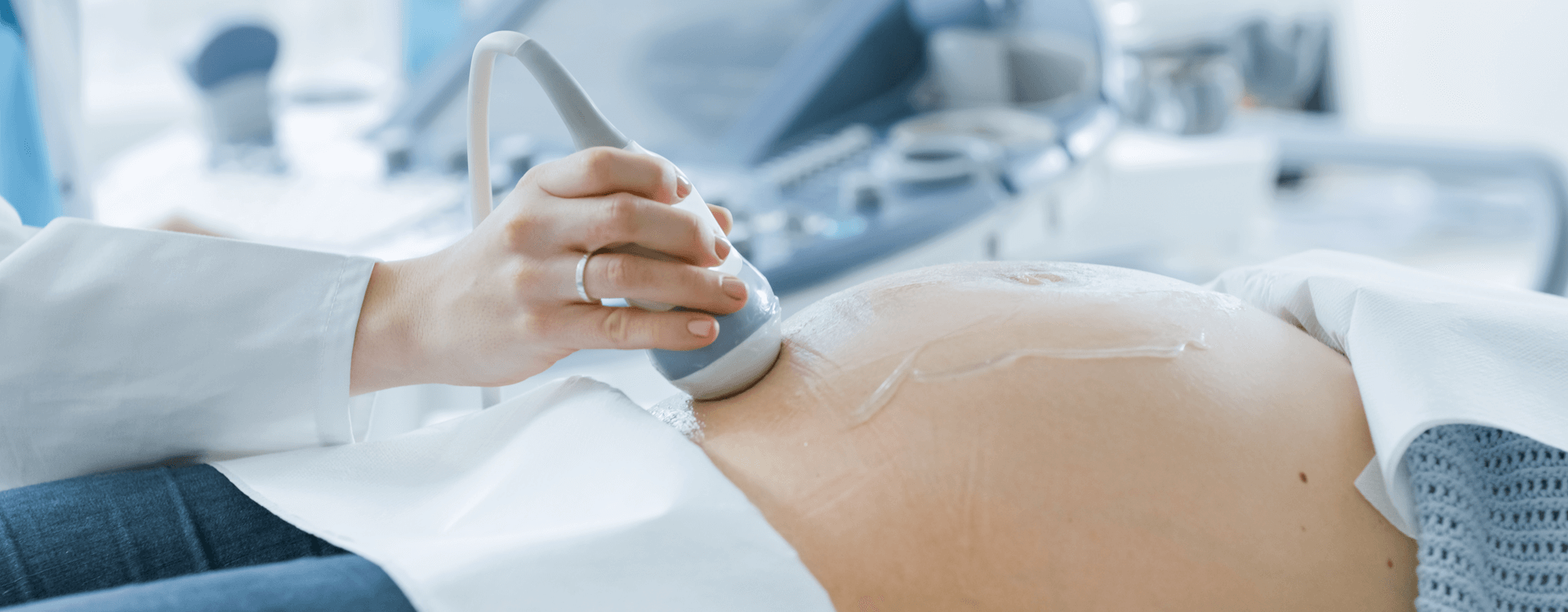Deciding to start or grow your family is a big, personal choice, and for many women, turning 40 can bring up a lot of questions. One of the most common is, "Can I still get pregnant at 40?"
Keep reading for an in-depth look at the challenges, options, and tips for boosting fertility in your 40s.
Can You Get Pregnant at 40?
While it's true that fertility naturally declines with age, it’s definitely still possible to get pregnant after 40. Thanks to advancements in reproductive technology, better overall health awareness, and changes in lifestyle, more women are having children in their 40s than ever before.
That said, there are a few important things to consider when trying to conceive later in life. Understanding these can help you make the best decisions for your fertility and future.
What Are the Chances of Getting Pregnant After 40?
Getting pregnant after 40 can be much harder due to a natural decline in fertility.
A study on North American women trying to conceive showed that after 6 months of trying, about 62% of women aged 28–30 got pregnant, but only 27.6% of women aged 40–45 had the same success.
After a year of trying, the numbers were 79.3% for women aged 25–27, but just 55.5% for those 40–45.
The study found that fertility starts to drop noticeably after age 34, with women 40–45 having only a 40% chance of conceiving compared to those in their early 20s.
In short, while it’s still possible to get pregnant after 40, your chances are lower and continue to drop as you get older [*].
Why Does Fertility Drop After 40?
As women age, both egg quantity and quality decline, making it harder to conceive and increasing the risk of miscarriage. Hormonal and uterine changes in the 40s can also affect fertility, so understanding these shifts can help women make informed decisions about family planning.
Decline in Egg Quantity
Women are born with a set number of eggs, and unlike men, they don’t make new ones as they get older.
The number of eggs is highest in the womb, but it starts to decline pretty quickly after birth, with a bigger drop around age 32. By the time women reach 37, the decline speeds up even more.
Many women don’t realize how much fertility changes with age, and waiting too long can increase the risk of infertility. For women over 35 who are having trouble conceiving, testing for a low egg reserve might be recommended. For women over 40, seeing a fertility specialist is often a good idea.
Getting this information early can help women make informed choices about when to start a family [*].
Decreased Egg Quality
Not only does egg quantity decrease with age, but egg quality does as well. This is another big reason fertility drops, and the chances of miscarriage go up.
By the time women are in their 40s, eggs are more likely to have chromosomal issues, making it harder for embryos to implant and increasing the risk of miscarriage. While egg quality is the main factor, there’s still some debate about whether the uterus also plays a role.
Studies using egg donation, where younger eggs are placed in older women, show mixed results. Some women still have trouble getting pregnant even with healthy eggs, suggesting the uterus may not be as receptive with age.
Overall, both egg quality and the health of the uterus contribute to fertility struggles as women get older [*].
Hormonal Changes
As women get older, hormonal changes start to affect their fertility, especially when they reach perimenopause.
For most of their lives, women have pretty regular cycles and predictable hormone patterns, but by around age 47, things start to get more unpredictable. Menstrual cycles may become irregular, and hormone levels can fluctuate a lot. These changes can cause a range of symptoms, like trouble sleeping, mood swings, or headaches.
This hormonal shift can make it harder to get pregnant because ovulation might not happen as regularly.
Combined with the natural decline in egg quality and quantity as women age, these hormone changes contribute to the fertility struggles many women face in their late 30s and 40s [*].
Uterine Changes
As women get older, changes in the uterus can also affect their ability to get pregnant.
Research shows that as women age, the structure and function of the uterus and its lining (the endometrium) start to change, which can make it harder for a fertilized egg to implant.
The endometrial lining may become thinner or less receptive, and blood flow to the uterus can decrease, making it harder to conceive [*].
How to Boost Fertility in Your 40s
While fertility naturally declines with age, there are several steps you can take to help maximize your chances of conception if you’re trying for a baby after 40.
Have a Healthy Diet
What you eat can have a big impact on fertility. Diets high in healthy fats, whole grains, veggies, and fish are linked to better fertility, while too much sugar and saturated fats can hurt your chances of getting pregnant.
Maintaining a healthy weight is also important. Being overweight or underweight can increase the risk of infertility. Nutrition can even affect the success of fertility treatments, so what you eat plays a big role in your fertility regardless of age [*].
Stay Active, but Don’t Overdo It
Staying active can help fertility as you age, but it’s important to find the right balance.
For women with PCOS, regular exercise like cardio or strength training can improve insulin sensitivity and boost fertility. For women going through fertility treatments, exercise doesn’t usually affect results.
However, for healthy women trying to conceive, too much intense exercise can mess with ovulation. If that happens, cutting back on intensity or eating a bit more can help.
In general, moderate exercise is great for both physical and mental health when trying to get pregnant [*].
Consider Taking Supplements
Supplements like melatonin, folic acid, myo-inositol, N-acetyl cysteine (NAC), and carnitine have solid evidence showing they can help with fertility. Studies have backed these ingredients for improving reproductive health, especially for women struggling with infertility.
If you’re thinking about trying them, they could be a helpful addition to your fertility plan. Just make sure to chat with your doctor first to see if they’re the right fit for you [*].
Get Your Reproductive Health Checked
Going to a doctor can give you a clear picture of your fertility. They’ll ask about your health history, like past pregnancies or any pelvic issues, and do exams like a pelvic check or ultrasound.
Blood tests can help measure hormones that show how well your ovaries are working and how many eggs you have left. If there are concerns about your fallopian tubes or uterus, they might do additional tests, like an X-ray or laparoscopy.
For women over 35, extra checks can help assess egg health. Overall, seeing a doctor helps identify any fertility issues and guides your next steps [*].
How to Get Pregnant After 40
Trying to get pregnant in your 40s? While natural methods like tracking ovulation and maintaining a healthy weight can help, sometimes assisted treatments like IVF or IUI may be needed. Here’s how to boost your chances of conceiving, whether you go the natural route or need medical support.
Natural Methods
There are plenty of natural ways to up your chances of getting pregnant, like tracking your ovulation and staying at a healthy weight. Small changes in your routine can help create a better environment for fertility.
Track Your Ovulation
Tracking your ovulation can boost your chances of getting pregnant by helping you figure out when you're most fertile.
While a lot of guidelines say your fertile window is between days 10 and 17 of your cycle, that doesn't work for everyone. Some women ovulate earlier, some later, and even women with regular cycles can have unpredictable timing.
By tracking ovulation through things like temperature, ovulation tests, or cervical mucus, you can get a much better sense of when you're actually in your fertile window. This way, you can time things better and increase your chances of conceiving [*].
Maintain a Healthy Weight
Maintaining a healthy weight can help with fertility, but the key is preventing weight gain, not focusing on quick weight loss.
Recent studies show that losing weight doesn't seem to improve fertility for women trying to conceive, whether with medical help or not. However, gaining a lot of weight between pregnancies or before trying to conceive can make it harder to get pregnant and stay pregnant.
So, it's more important to focus on preventing weight gain during your reproductive years to support long-term fertility and overall health [*].
Medically-Assisted Methods
For some women over 40, natural methods may not be enough, and medical intervention may be necessary. There are several assisted reproductive technologies (ART) that can help:
In Vitro Fertilization (IVF)
IVF is becoming a more popular option for women, especially those over 40, who are having trouble getting pregnant. The process involves taking eggs, fertilizing them outside the body, and then putting the embryos back in the uterus.
As IVF technology improves, it’s giving women a better shot at pregnancy even when age makes it harder [*].
Egg Freezing
For women over 40, freezing eggs can be a helpful way to boost your chances of having a baby later. It lets you freeze your eggs at a younger age, giving you more flexibility to focus on career or personal goals without worrying about age-related fertility issues.
While there’s still some uncertainty around it, egg freezing is becoming more common, and doctors are getting better at helping women understand the process and make informed choices about when to start a family [*].
Intrauterine Insemination (IUI)
IUI can be another good option for older women trying to conceive, especially when combined with meds to help boost egg production. The process involves placing sperm directly into the uterus at the right time for fertilization.
Success with IUI depends on factors like age, egg quality, and hormone levels, but with the right conditions, it can still work.
Even though age is a key factor, ovarian stimulation and good sperm quality can improve the chances of pregnancy, making IUI a solid choice for women over 40 [*].
Risks of Having a Baby at 40
Pregnancy after 40 comes with an increased risk of complications both for the mother and the baby. Understanding these risks can help you make an informed decision about your pregnancy.
Increased Risk of Miscarriage
Women over 40 are more likely to experience miscarriage, mainly because egg quality tends to decline with age, which can lead to more chromosomal problems and pregnancy complications.
A study found that women in their 40s have more than three times the risk of miscarriage compared to women in their 20s and early 30s. This is because older eggs are more prone to issues, which can also increase the risk of things like preterm birth.
However, while the risks are higher, many older women still have healthy pregnancies with the right monitoring and care [*].
Higher Odds of Chromosomal Abnormalities
As mentioned earlier, egg quality declines with age, leading to more errors when the eggs divide. This gives women over 40 an increased risk of chromosomal abnormalities in the baby like Down syndrome. Some of these issues actually start when the eggs are first formed in fetal development.
While age affects different chromosomes in different ways, it's clear that as women age, their chances of chromosomal abnormalities in pregnancy increase [*].
Preterm Birth
Women over 40 have a higher risk of preterm birth. A study with over 165,000 births found that as women get older, especially after 40, the chances of delivering before 37 weeks go up.
The lowest risk is for women aged 30-34, but older women face a higher chance of preterm birth.
Health issues like high blood pressure, using fertility treatments, and complications like placenta complications can add to the risk. That’s why it’s super important for women over 40 to get extra care and monitoring during pregnancy to keep things on track [*].
Gestational Diabetes
Older women are more likely to develop gestational diabetes (GDM), which can affect both their health and their baby's.
As women age, the body’s ability to manage glucose can decline, increasing the risk of GDM. This can lead to complications like preterm birth, fetal distress, and large babies.
On top of that, GDM in older women is linked to other issues like preeclampsia and polyhydramnios [*].
Placenta Previa
Women over 40 face a higher risk of complications during pregnancy, including placenta previa, where the placenta is positioned abnormally in the uterus. Studies show that older moms are more likely to experience this condition, which can lead to complications like needing a cesarean section.
This increased risk is linked to age-related changes in the uterus and other pregnancy issues like high blood pressure or diabetes.
Because of these risks, older pregnant women need extra monitoring and care throughout their pregnancies [*].
Pregnancy After 40: Benefits
Despite the risks, there are several advantages to becoming a mother after 40.
Emotional Maturity
Many women in their 40s are more emotionally mature and stable than in their 20s or early 30s. This can lead to a more balanced approach to parenting, with better coping skills and an enhanced ability to handle the demands of raising a child.
Financial Stability
By the time women reach their 40s, they may be more financially stable. This can provide a solid foundation for raising a child, with fewer financial stresses compared to younger parents who might be still building their careers or handling student loans.
Greater Life Experience
Having more life experience can be an advantage in raising children. Women in their 40s may be more patient, have better problem-solving skills, and have a better understanding of what they want out of life.
What to Expect When Pregnant at 40
For women over 40, pregnancy can be tougher on joints that have had more use over the years. As the pregnancy progresses, especially in the third trimester, extra weight, hormonal changes, and fluid buildup put more strain on joints like the back, hips, and knees.
If you’re dealing with joint pain, the added pressure from a growing belly and changes in posture can make things feel even worse.
Lower back pain is common and might stick around after birth, and hip and foot pain can get worse too as the body adjusts [*].
It's Not Too Late to Bank Cord Blood
If you're having a baby after 40, cord blood banking is a smart way to protect your family’s health. It’s packed with stem cells that are already being used to treat over 80 serious blood disorders, with more potential uses being explored in clinical trials.
MiracleCord offers affordable, high-quality cord blood banking, so you can feel confident knowing your family’s health is covered. We've been recognized as the Best U.S. Cord Blood Bank, and we make the process simple and hassle-free. Want to learn more?
Request a complimentary information kit or call us at 888.743.2673.
The Bottom Line
You can get pregnant at 40, but it might take longer and could be a bit trickier.
As you get older, your egg quality and quantity drop, and you might run into hormonal changes that affect your fertility.
That said, many women still have babies at 40 with help from things like IVF or IUI.
Staying healthy, tracking ovulation, and talking to a fertility doctor can give you the best shot.
Just know that it might take more time and patience, and there are higher risks, so extra care is important!
DISCLAIMER: THE INFORMATION ON THIS WEBSITE IS NOT INTENDED TO BE USED AS MEDICAL ADVICE.The materials and information contained on the MiracleCord website is provided for educational and informational purposes only, and is not intended to, and does not constitute, medical or other health advice or diagnosis, and should not be used as such. You should not use this information to diagnose or treat a health problem or disease. If you are seeking personal medical advice, you should consult with a licensed physician. Always consult with a qualified health care provider regarding a medical condition.




